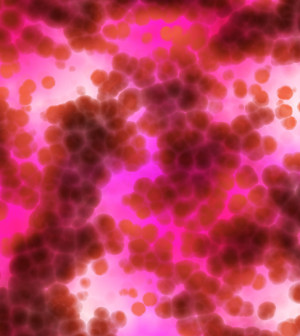- Double Mastectomy May Offer No Survival Benefit to Women With Breast Cancer
- Toxic Lead Found in Cinnamon Product, FDA Says
- Certain Abbott Blood Sugar Monitors May Give Incorrect Readings
- Athletes Can Expect High Ozone, Pollen Counts for Paris Olympics
- Fake Oxycontin Pills Widespread and Potentially Deadly: Report
- Shingles Vaccine Could Lower Dementia Risk
- Your Odds for Accidental Gun Death Rise Greatly in Certain States
- Kids From Poorer Families Less Likely to Survive Cancer
- Tough Workouts Won’t Trigger Cardiac Arrest in Folks With Long QT Syndrome
- At-Home Colon Cancer Test Can Save Lives
Drinking Before First Pregnancy Raises Risk of Breast Cancer: Study


WEDNESDAY, Aug. 28Drinking even one alcoholic drink a day in the years before a woman’s first pregnancy can increase her risk of breast cancer later in life, according to a large new study.
Other research has linked alcohol consumption to increased breast cancer risk, as well as finding that delayed childbearing can increase breast cancer risk.
The new research is thought to be the first to focus on the effect of alcohol intake during the time frame between the start of menstruation and a first pregnancy, the researchers said.
“The risk increased by 11 percent for every 10 grams a day of intake, about six drinks per week,” said study author Dr. Ying Liu, an instructor of public health sciences at Washington University School of Medicine, in St. Louis. “These risk values were estimated as compared with nondrinkers.”
“One drink was defined as one bottle or can of beer, a 4-ounce glass of wine or a shot of liquor,” Liu said.
Drinking about one drink a day also increased the risk for proliferative benign breast disease, a risk factor for breast cancer, by about 16 percent, according to the study, which was published Aug. 28 in the Journal of the National Cancer Institute.
The researchers analyzed data from more than 91,000 women who took part in the Nurses’ Health Study II who had no cancer history when they began. They answered questions on alcohol consumption in 1989 and were followed through 2009 to analyze their risk of breast cancer.
The new study also looked at whether the women contracted benign breast disease, and whether alcohol may have played a role in that condition, in a subgroup of more than 60,000 women who were evaluated from 1991 through 2001.
The researchers found more than 1,600 cases of breast cancer and 970 diagnoses of benign breast disease during the study period.
Drinking alcohol after the first menstrual period and before the first pregnancy was linked with a risk of both, regardless of whether a woman drank after the first pregnancy. The link held after accounting for multiple other risk factors, including family history of breast cancer.
The more the women drank, the higher their risk.
The researchers, however, found only a link between pre-pregnancy drinking and breast cancer risk, not a cause-and-effect relationship.
“Breast tissues are particularly susceptible to environmental exposures between [the onset of menstruation] and first pregnancy because they undergo rapid cellular proliferation,” Liu said. During pregnancy, however, other cellular changes make the breast tissue less susceptible to cancer.
“Our results suggest that alcohol intake before the first pregnancy consistently increases the risk of breast cancer and the risk of proliferative [benign breast disease],” Liu said. She speculated that the benign breast disease may be a pathway linking drinking in early life and breast cancer, ”but not the only route.”
It is crucial to put the 11 percent increased risk in perspective, said Dr. Laura Kruper, co-director of the breast cancer program and director of the Cooper Finkel Women’s Health Center at the City of Hope Cancer Center in Duarte, Calif.
Overall, a woman’s lifetime risk of breast cancer is about one in eight, or 12 percent. “If you take the baseline risk — 12 percent — and increase that by 11 percent, it is about 13 percent,” Kruper said.
Liu said the one-in-eight statistic includes both drinkers and nondrinkers, but she did not know of a statistic for lifetime breast cancer risk for nondrinkers.
So although the study did find an increased risk, Kruper said, “I think the real take-home point is the more you drink the more you increase risk.”
The research is another call for moderation, Kruper and Liu agreed. Liu said all women in the age category she studied “should reduce their drinking to less than one drink a day, especially before first pregnancy, to reduce their breast cancer risk.”
More information
To learn more about risk factors for breast cancer, visit the American Cancer Society.
Source: HealthDay
Copyright © 2024 HealthDay. All rights reserved.










